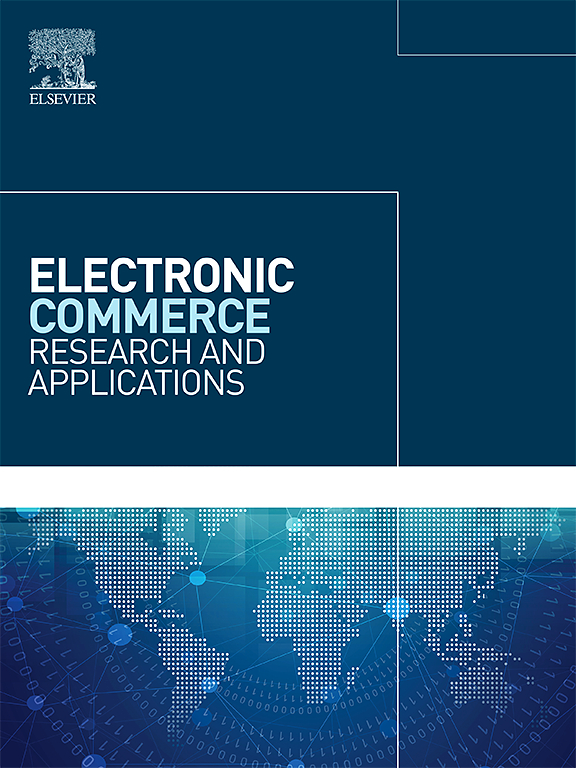合作竞争供应商存在下的品牌溢出与信息披露
IF 6.3
3区 管理学
Q1 BUSINESS
Electronic Commerce Research and Applications
Pub Date : 2025-09-23
DOI:10.1016/j.elerap.2025.101545
引用次数: 0
摘要
当零售商将其自有品牌外包给全国性品牌公司时,零售商可以利用这种关系来推广其自有品牌产品,这被称为品牌溢出。此外,零售商可以提供详细的自有品牌信息,以减轻消费者对产品偏好的不确定性。本文建立了一个博弈论模型,研究了电子商务平台销售两种品牌产品的信息披露和品牌溢出策略:一种是自有品牌(弱品牌),另一种是由合作竞争供应商提供的民族品牌(强品牌)。电商平台将自有品牌(弱品牌)制造外包给供应商。均衡分析表明,平台对最优策略配置的选择取决于消费者异质化效应和品牌同质化效应。信息披露可以引发消费者异质化效应,缓解供应商与平台之间的价格竞争强度,而品牌溢出可以引发品牌同质化效应,使平台的自有品牌产品更具吸引力。信息披露与品牌溢出之间既存在替代关系,也存在互补关系,这取决于成本效率。信息披露和品牌溢出是平台和供应商双赢的结果,因此,这些策略可以作为供应链协调的有效工具。本文章由计算机程序翻译,如有差异,请以英文原文为准。
Brand spillover and information disclosure in the presence of a co-opetitive supplier
When a retailer outsources its private brand to a national brand firm, the retailer can leverage this relationship to promote its private brand product, which is referred to as brand spillover. Additionally, the retailer can provide detailed private brand information to alleviate consumers’ uncertainty about their preference for the product. We build a game-theoretic model to examine the information disclosure and brand spillover strategies in the context where an e-commerce platform sells products of two brands: its private brand (weak-brand) and a national brand (strong-brand) supplied by a co-opetitive supplier. The e-commerce platform outsources its private brand’s (weak-brand) manufacturing to the supplier. The equilibrium analysis shows that the platform’s choice of optimal strategy profile depends on two effects: the Consumer-heterogenization effect and the Brand-homogenization effect. Information disclosure can trigger the Consumer-heterogenization effect mitigating the intensity of price competition between the supplier and the platform, while brand spillover can cause the Brand-homogenization effect, enabling the platform’s private brand product to be more attractive. Both substitution and complementary relations are found between information disclosure and brand spillover depending on the cost efficiency. There exists a win–win outcome that both the platform and supplier can be better off from information disclosure and brand spillover, therefore, these strategies can serve as effective tools for supply chain coordination.
求助全文
通过发布文献求助,成功后即可免费获取论文全文。
去求助
来源期刊

Electronic Commerce Research and Applications
工程技术-计算机:跨学科应用
CiteScore
10.10
自引率
8.30%
发文量
97
审稿时长
63 days
期刊介绍:
Electronic Commerce Research and Applications aims to create and disseminate enduring knowledge for the fast-changing e-commerce environment. A major dilemma in e-commerce research is how to achieve a balance between the currency and the life span of knowledge.
Electronic Commerce Research and Applications will contribute to the establishment of a research community to create the knowledge, technology, theory, and applications for the development of electronic commerce. This is targeted at the intersection of technological potential and business aims.
 求助内容:
求助内容: 应助结果提醒方式:
应助结果提醒方式:


